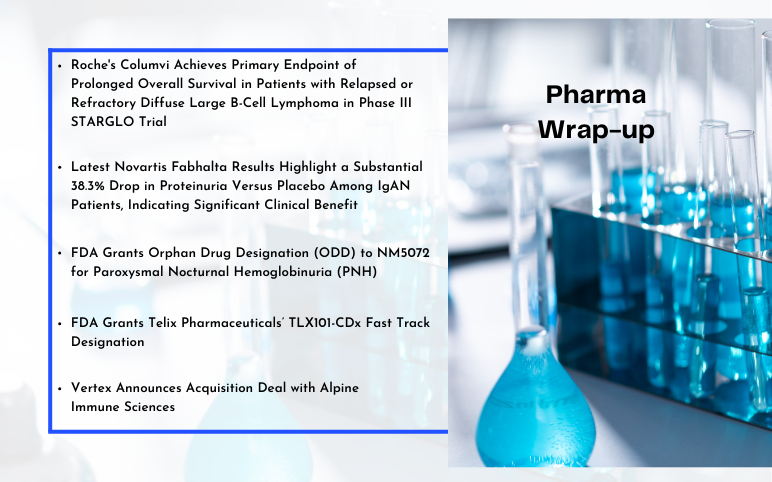AstraZeneca recently has announced the results of the clinical trials POSEIDON which included the study of a combination of drugs Imfinzi (durvalumab) and tremelimumab with chemotherapy in lung cancer.
Imfinzi is a human monoclonal antibody which blocks the interaction of PD-L1 with PD-1 by binding itself with the former. FDA approved the use of the drug in early for the treatment of unresectable stage III non-small cell lung cancer (NSCLC) and locally advanced or metastatic urothelial carcinoma.
Tremelimumab, on the other hand, is a fully human monoclonal antibody which works against Cytotoxic T-cell lymphocyte-associated protein 4 (CTLA-4) and boosts the action of the T-lymphocytes and immune response against cancer. The drug has been under investigation for NSCLC, locally-advanced or metastatic urothelial carcinoma, head and neck cancer, liver cancer and blood cancers.
POSEIDON trial was able to show a significant improvement in the NSCLC patients who were subjected to a combination of Imfinzi and a broad choice of five standard-of-care platinum-based chemotherapy options as compared to the patients who were administered with chemotherapy alone. The combination therapy saw no compromise with the safety and tolerability and was in line with the
According to the American Cancer Society’s estimates, about 228,150 new cases of lung cancer are expected to get reported by the end of the year 2019. Moreover, approximately 142,670 deaths will be from lung cancer.
As per the analysis by DelevInsight, the non-small cell lung cancer treatment landscape, for the past two decades, revolved around chemotherapy regimens. Chemotherapy often consists of a combination of drugs, such as cisplatin (Platinol) or carboplatin (Paraplatin) plus docetaxel (Taxotere), gemcitabine (Gemzar), paclitaxel (Taxol and others), vinorelbine (Navelbine and others), or pemetrexed (Alimta). Conventional cancer treatments, including surgical resection, chemotherapy, and/or radiotherapy, have shown modest progress in NSCLC survival over the past two decades.
Recent years experienced the ingression of immune-checkpoint inhibitors into non-small cell lung cancer therapeutics market. Besides Imfinzi (durvalumab), Pembrolizumab (Keytruda), Nivolumab (Opdivo), and Atezolizumab (Tecentriq) are the other immune-checkpoint inhibitors in first-line and second-line NSCLC treatment.
Gilead Sciences and Glympse Bio have announced a strategic collaboration aiming to use Biomarker Technology in Nonalcoholic steatohepatitis (NASH) clinical development.
Glympse Bio’s synthetic biomarkers are with identifying the stage and progression of the disease helping in early detection. They will be utilized to determine the clinical trial participants’ stage of the disease and response to the NASH clinical trial. The company combines its biomarkers with machine intelligence to identify the stage and monitor the progression of complex diseases such as cancer, fibrosis, inflammation, and infections.
The news of entering into strategic partnership came days after it announced the not so positive results in the mid-stage trials of its JAK-inhibitor filgotinib for Lupus and Sjogren’s syndrome.
Filgotinib has been approved for the treatment of moderate-to-severe rheumatoid arthritis. Moreover, Filgotinib is also under trials for diseases including Crohn’s disease, ulcerative colitis, ankylosing spondylitis, psoriatic arthritis, Sjögren’s syndrome, cutaneous lupus, and uveitis.
More than one million people in the United States have been diagnosed with Sjögren’s syndrome out of which around 90% of the affected patient pool comprises of women.
Sjögren’s syndrome prevalence, published in a journal of NCBI, is 0.2%, with an incidence of 4 cases per 100,000 per year. Moreover, Sjogren’s is 20 times more common in females than in males. About half of the patients also have rheumatoid arthritis or other connective tissue diseases, such as lupus.
The Sjögren’s syndrome therapeutics market size, as analyzed by DelveInsight, is mainly accounted by symptomatic treatment including local therapies (pilocarpine, cevimeline, topical fluoride, topical cyclosporine, autologous serum eye drops, and others), systemic therapies (corticosteroids, hydroxychloroquine) and immunosuppressants (Methotrexate (MTX), Cyclosporine A, Azathioprine, Leflunomide, and Mycophenolic acid) are commonly used interventions. Moreover, biological therapy with Rituximab is in extensive use for the US market.
The US FDA has extended the use of LILETTA (levonorgestrel-releasing intrauterine system) 52 mg for up to six years making it the longest approved hormonal IUD in the US.
Liletta, developed by Medicines360 in partnership with Allergan, a non-profit organization, is a hormone-releasing system placed in the uterus of women which offers long-term and a reliable option to prevent pregnancy and is a reversible option.
Many American women have been using Liletta as a safe and viable measure to avoid unwanted pregnancies. The extension of the use of the IUD for up to six years came after the data based on the ongoing ACCESS IUS trials in women of age range between 16 to 45.
Liletta first received the FDA approval in the year 2015, and since then the companies have continued to invest more time and research in the product. The continuous efforts have resulted in the extension of the use for up to six years.









-Agonist.png)


